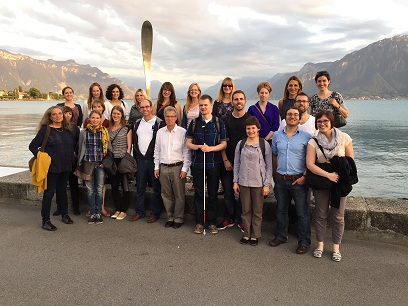
Last week, I attended the 8th edition of the Geneva Aging Series, organised by the Cognitive Aging Lab (Matthias Kliegel, University of Geneva). This year’s topic was “Cognition meets emotion” and included keynotes by Carien van Reekum, University of Reading, UK, who presented work on the neural basis of individual and age differences in emotional processing, and Derek Isaacowitz, Northeastern University, USA, who gave an overview on experimental work aiming to assess the links between aging and emotion identification/regulation and included some food-for-thought about open science in aging research.
Derek pointed out that most work on aging focuses on identifying differences between age groups (while similarities are likely to be considered of less importance) and argued that this is likely to have led to a large rate of false positives in aging research. Derek suggested that this state of affairs may imply we need to reassess some preconceptions about key findings in our field, for example, those related to positivity effects in emotional processing with increased age (“older adults look on the brighter side of life”).
More generally, Derek suggested that aging journals have a responsibility to foster open sciences practices (e.g., encourage replications and registered reports, encourage/mandate publishing of data and code) to help counteract the tendency of reporting only “significant” age differences and reduce researcher-degrees-of-freedom to put aging research on firmer empirical ground.
I for one, as reviewer, would very much appreciate clearer guidelines from aging journals about what to expect/demand from authors. These days, I end most of my reviews encouraging authors to make their data and code available (Yes! I’m Reviewer #2) but it would be nice if this went without saying and there were checklists in place that could help authors and reviewers in this process. Fortunately, there are some initiatives in this direction at Journals of Gerontology B: Psychological Sciences (for which Derek is an editor-in-chief) and, somewhat more timidly, at Psychology and Aging (where I serve as a consulting editor). It would be great to see open science gain some traction in aging research…
Be the first to leave a comment. Don’t be shy.